How can I reduce my risk of mouth cancer?
Mouth cancer is on the rise, with diagnoses increasing by 38% in the past 10 years, and 133% compared with 20 years ago. But, the good news is that many of the risk factors are within your control. By making some key lifestyle changes and staying on top of your oral health, you can significantly lower your risk of developing mouth cancer.
- 1. Cut Down or Quit Smoking
Smoking is one of the biggest risk factors for mouth cancer. The harmful chemicals in tobacco damage the cells in your mouth, increasing the chance of abnormal changes. If you smoke then giving up, or even cutting down, can dramatically reduce your risk.
Don’t be disheartened if you are struggling to quit. Research shows that it can take anywhere from 6 to 30 attempts to quit, so please don’t give up on taking such a big step towards a healthier smile and a healthier you. - 2. Limit Alcohol Intake
Alcohol is another major contributor to mouth cancer, especially when combined with smoking. Drinking just 10 units of alcohol per week increases your risk by 20%, and 22 units by a staggering 60%. When alcohol and tobacco are combined, the risk multiplies by up to 30 times. Reducing how much and how often you drink can make a real difference to your long-term oral and overall health. - 3. Eat a Balanced, Nutrient-Rich Diet
A healthy diet rich in fruit and vegetables can help protect your mouth and body from many diseases, including cancer. These foods are packed with antioxidants and nutrients that support your immune system and repair cellular damage. Aim for a colourful mix of fresh produce every day. - 4. Understand the Role of HPV
The human papillomavirus (HPV) is a growing cause of mouth and throat cancers. It’s commonly transmitted through sexual activity, including oral sex. Using barrier protection, such as condoms can reduce the risk of passing the virus between partners. HPV vaccinations are also available and increasingly recommended for both boys and girls. - 5. Keep Up With Your Dental Check-Ups
Regular dental visits aren’t just about keeping your teeth clean—they’re also a key line of defence against serious conditions like mouth cancer. Some cancers are preceded by non-cancerous signs that tip your dentist off that a hospital check would be advisable. Once a cancer is present, most are treatable if caught early, but symptoms can be subtle and progress silently. At your healthy mouth assessments, we check for any early signs of problems, even if you wear dentures or no longer have natural teeth.
Book your healthy mouth assessment and mouth cancer screening
What are the signs or symptoms that mean I should book to have checked?
There are a number of signs you can look out for, including:
- Ulcers that haven’t healed after 3 weeks
- Red or white patches in your mouth
- Bleeding
- A new lump
- Numbness
- A single or small number of loose teeth in one area of your mouth
- Problems speaking or swallowing
What should I do if I’m worried?
Firstly, don’t panic! Most of the symptoms above are from much simpler causes. It is however important to get anything you are concerned about checked out. Make an appointment with us, and we can refer you on a 2 week urgent referral pathway if necessary.







